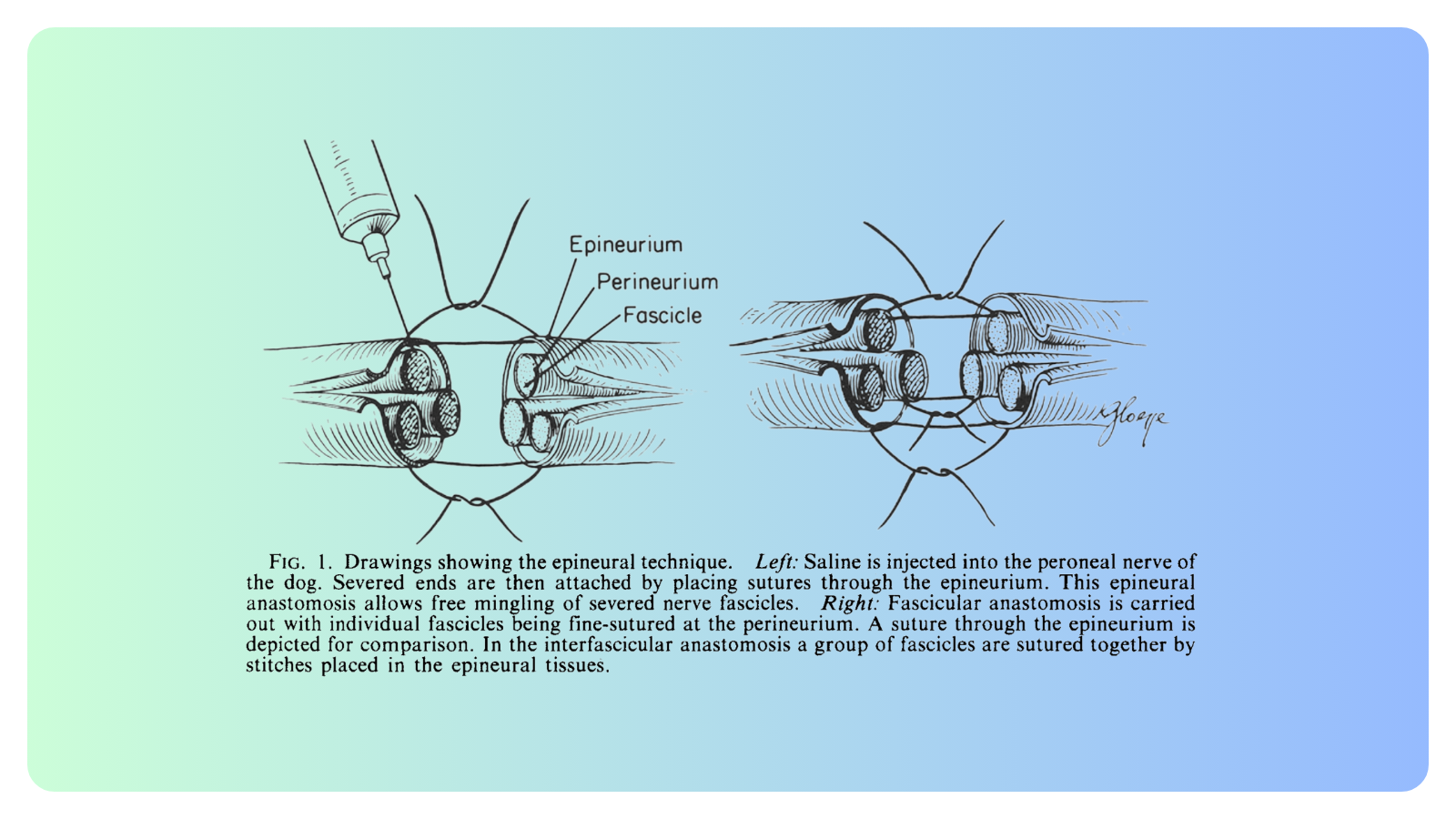In this week's edition
- ✍️ Letter from P'Fella
Plastic Surgery: The forgotten specialty in med school. - 🤓 The Sunday Quiz
How well do you know median nerve tendon transfers? - 🖼️ Image of the Week
Anatomy of a peripheral nerve injury. - 🚑 Technique Tip
Comparing nerve repair techniques for simple nerve lacerations. - 🎙️ Behind the 'Fella
We want to hear your thoughts! - 📖 What Does the Evidence Say
The best microsurgical nerve technique for the median nerve. - 🔥 Articles of the Week
'Hand of Benediction' in high median nerve injuries, surgeon experience in CTS diagnosis, & amyloid detection in carpal tunnel surgery: with 1 sentence summaries. - 💕 Feedback
Suggest ideas & give feedback!
A Letter from P'Fella
Med Students No Longer Learn Plastic Surgery
I recently ran a Twitter poll about plastic surgery exposure during medical school, and the results were eye-opening: 30% had no exposure at all, and only 19% experienced it as part of their formal syllabus. Most had to self-organize any exposure — highlighting a major gap in medical education.
This isn’t just anecdotal. Studies (Hatan, et al) confirm that medical students lack proper awareness of plastic surgery. Most see it as just cosmetic procedures, but it’s much broader — reconstructive surgeries, hand trauma, burns, and more. Without proper teaching, misconceptions grow, and interest in the specialty falls.
You might be asking, Why does this matter?
- Without proper understanding of plastic surgery, patients are misdirected, limiting outcomes and shrinking the specialty.
- Lack of exposure also deters diverse voices, as fewer opportunities discourage students from varied backgrounds, reducing future specialist diversity.
To help solve this, we’re building a textbook. A more streamlined integration into curriculums. We’re building a pretty strong team to get this over the line. The interviews are done (over 200 people applied to work with The Plastics Fella in the last 9 months!) and we're excited to move forward.
I’d love your input 👇


Drop your thoughts above or on social media.
With love,
P'Fella ❤️
The Sunday Quiz
How Well Do You Know Median Nerve Tendon Transfers?
Welcome to the next round of The Weekly Quiz.
Each edition of thePlasticsPaper includes a quiz question designed to challenge and engage our readers. Keep your wits about you and join in every week — the winner at the end of six rounds will earn you a $100 voucher.

Image of the Week
Anatomy of the Peripheral Nerve
In this section, we feature an anatomical illustration. This edition looks at the anatomy of a peripheral nerve injury.
Read more on nerve injuries here.

Technique Tip
Comparison of Nerve Repair Techniques
This edition looks at a comparison of simple nerve laceration repair techniques. Fascicular and epineural suture techniques for simple nerve lacerations show comparable outcomes in preserving axonal continuity, while interfascicular sutures lead to poorer axonal recovery, highlighting their limited utility in direct nerve repair.
You can read more details on the techniques here.

Behind the ‘Fella
What Are Your Thoughts So Far? Let Us Know
We appreciate your thoughts and feedback on our podcast releases so far. Your input directly shapes the output as we grow with you — our community. So, share your ideas below 👇
What Does the Evidence Say?
What Is the Best Microsurgical Nerve Technique for the Median Nerve?
Conventional methods like epineural end-to-end suturing and nerve grafting remain standard approaches (Mafi et al., 2012). Fibrin glue has shown promise, with studies indicating comparable outcomes to microsutures in terms of nerve regeneration and functional recovery (Anani & El-Sadek, 2013). However, combining sutures with fibrin glue may provide the strongest repair (Mitchell et al., 2022).
Collagen conduits have demonstrated equivalent sensory and motor recovery to direct suture for small nerve gaps (Boeckstyns et al., 2013). End-to-side neurorrhaphy has shown potential but with inferior functional outcomes compared to conventional techniques (Kettle et al., 2013).
Nerve transfers are increasingly used, particularly for brachial plexus injuries (Mackinnon, 2018). Factors affecting prognosis include patient age, repair timing, injury level, and scar formation (Mafi et al., 2012). Despite advancements, many patients still experience permanent sequelae following median nerve injuries (Pederson, 2014).
Articles of the Week
3 Interesting Articles with 1 Sentence Summaries
The "Hand of Benediction" is not diagnostic of high median nerve injury; true presentation involves MCP flexion of the index finger, requiring more accurate clinical assessment.
Surgeon experience influences CTS diagnosis. Experienced surgeons favor EDS over CTS-6 criteria, highlighting the call for standardized assessment protocols.
Tenosynovial and transverse carpal ligament biopsies show 93% concordance, backing single-source sampling in carpal tunnel diagnosis.


